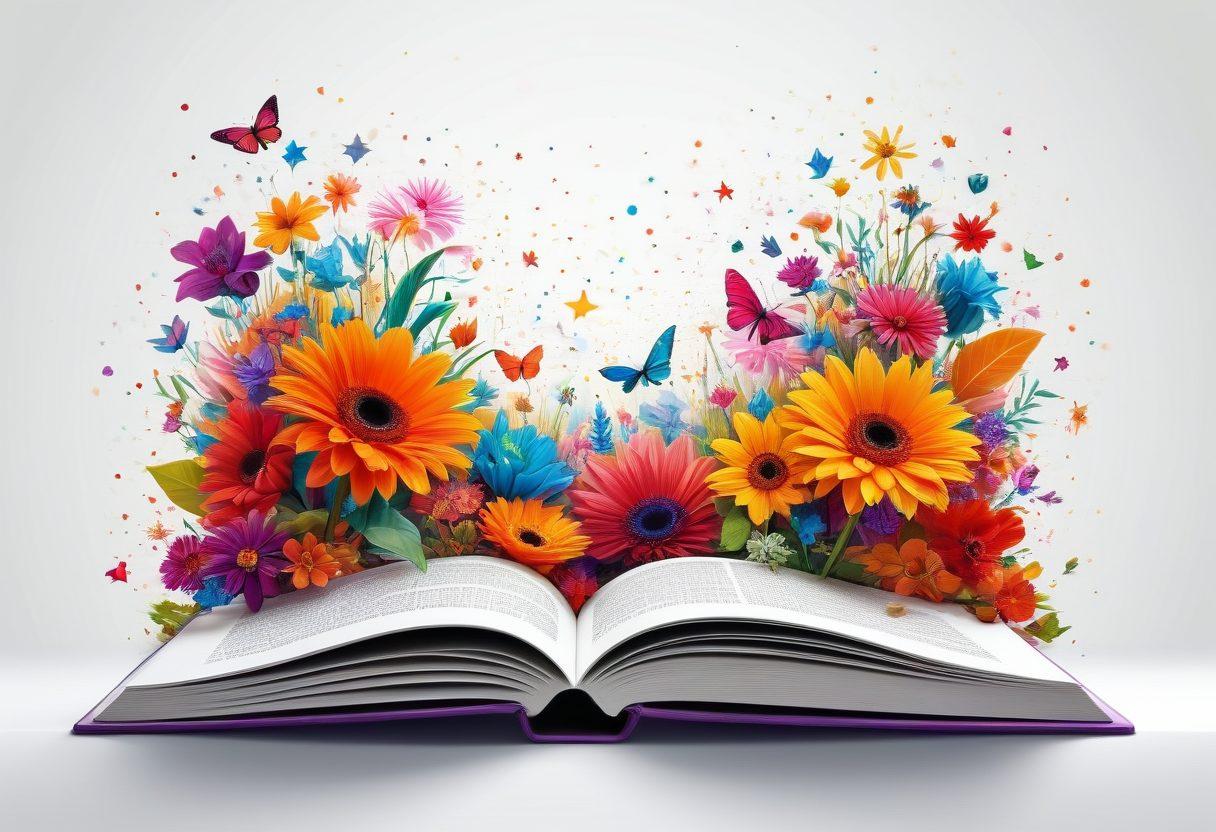Unlocking the Power of Descriptive Language: Mastering Adjectives and Their Impact
Have you ever read a sentence that transported you to another world? You know, the kind that painted such vivid imagery in your mind that you could almost feel the sun warming your skin or hear the rustling leaves in the wind? This is the magic of adjectives! These essential language tools are more than just a part of speech; they are the linguistic modifiers that enhance our writing and bring our thoughts to life. Let’s unlock the power of descriptive language together, starting with the essential role of adjectives in crafting vivid imagery that captivates our readers.
Adjectives are descriptive words that provide crucial details about nouns. They help us specify the color, size, shape, and other attributes of the things we're describing. For instance, consider the difference between a “bird” and a “small, blue bird.” The first evokes a general idea, but the latter transports us to a specific visual image. How often do we overlook the potential of adjectives to enhance our communication? By being mindful of our modifiers, we can weave more engaging and colorful narratives. Think of adjectives as your best friends in the realm of writing—they empower you to express your thoughts with clarity and flair.
Imagine crafting a passage where you want to highlight the beauty of a sunset. Instead of saying, “The sunset was beautiful,” an array of descriptive phrases can transform this into, “The sky blushed with vibrant hues of orange and pink as the sun dipped below the horizon.” With the right qualifiers, you invite your readers to experience the scene through your eyes. How do you currently harness adjectives in your writing? Are you utilizing enough descriptive words to create that 'wow' factor, or are you keeping your language flat and uninspiring?
Effective use of adjectives can lead to compelling storytelling. Think of the classic tales that have captivated generations—many of them thrive on rich, evocative language. In storytelling, adjectives serve as tags connecting feelings and scenes to the reader’s imagination. They resonate with readers' experiences and emotions. Consider the difference between “a forest” and “a dark, enchanted forest.” The second description ignites curiosity and sparks intrigue about what might dwell in such a place. So, how are you using your grammar elements to tell your story?
Moreover, adjectives can serve as powerful semantic modifiers that enrich our dialogue and thought. Whether it's in fiction, poetry, or professional writing, they help us convey complex ideas simply and persuasively. By focusing on adjectival forms, you can enhance your syntax elements to create more vivid imagery. Think of adjectives as miniature storytellers in their own right, bringing color and life to every piece of writing. So, why not start today? Experiment with descriptive phrases and see how they transform your writing from mundane to magnificent. Engage your readers’ senses and watch as your words breathe life into every page.
From Ordinary to Extraordinary: How Descriptive Language Transforms Communication
In a world inundated with information, how do we make our words stand out? Descriptive language is the answer—a captivating key that unlocks the door to vibrant communication. When we talk about transforming our dialogue from ordinary to extraordinary, what we’re really referencing are the powerful adjectives and descriptive words that paint pictures in our listeners’ minds. With each carefully chosen word descriptor we utilize, we are not simply conveying messages; we are weaving stories, invoking emotions, and inviting our audience to experience life through our unique lens.
Think about it for a moment: when someone describes a sunset, they can simply say 'The sunset was beautiful,' and it might evoke a fleeting thought. But what if they enhance that sentence with adjectives and descriptive phrases? 'The breathtaking, fiery sunset spilled hues of crimson and gold across the horizon.' Suddenly, those words leap into life! That is the magic of descriptive language—a robust arsenal of grammar elements that allows us to elevate the ordinary into extraordinary experiences. Are you ready to unleash this transformative power in your own communication?
At the heart of descriptive language lies the mighty adjective. These linguistic modifiers serve as vital tools, enriching our sentences by infusing them with attributes that help to convey our intended message more clearly. Imagine if we replaced mundane modifiers with vibrant qualifiers: instead of saying 'a big house,' we could describe it as 'a sprawling, majestic estate with intricate details nestled amidst lush gardens.' Who wouldn’t want to step into that world? By mastering adjectives and their adjectival forms, you turn flat statements into vivid narratives that engage and captivate your audience.
So, how can you effectively incorporate these syntax elements into your everyday language? Start by paying attention to the world around you. What do you see, feel, and hear? Ask yourself: what adjectives could capture that experience? For instance, while venturing through a bustling market, don’t just note the colors; be specific! Describe the 'vibrant, cobalt blues' and 'muted, rustic reds' that entice the visual senses. Transform your interactions by focusing on detail and sensory experiences; your listeners will thank you for it! Remember, the beauty of descriptive language is not just in the words we choose, but in the ability to evoke emotion and imagery through them.
In conclusion, transforming communication from ordinary to extraordinary hinges on our ability to wield descriptive language with skill and intention. By embracing the power of adjectives—and recognizing how they function as modifiers and qualifiers—we open up a world of enriching possibilities in our dialogue. So, the next time you write or speak, think about the descriptors that will enhance your message. Challenge yourself to paint your thoughts with words that truly resonate. After all, language is not merely a tool; it's an art form waiting for you to master it. Are you ready to harness the extraordinary power of descriptive language and change the way you communicate forever?
Mastering Modifiers: Harnessing the Art of Adjectives to Enhance Your Linguistic Skills
Imagine walking through a vibrant marketplace, where the air is thick with the scent of spices, and stalls overflowing with colorful fruits beckon you closer. What makes this scene so vivid in your mind? The answer lies in the power of adjectives, those magical descriptive words that paint our experiences with color and depth. To truly unlock the power of descriptive language, mastering modifiers is essential, allowing us to transform mundane sentences into captivating narratives that engage and resonate with our audience.
Adjectives are not just mere grammar elements; they are the lifeblood of storytelling. Have you ever read a book that lit a fire in your imagination? Authors wield adjectives like artists wield paintbrushes, carefully selecting each word to craft an enchanting scene. Consider this quote: "Words are, of course, the most powerful drug used by mankind." By understanding how to effectively use adjectives, we equip ourselves with language tools that enhance our communication and connection with others.
So, how can we harness these linguistic modifiers to elevate our own writing? One simple strategy involves replacing bland nouns with more specific adjectives, turning general descriptions into memorable experiences. Instead of saying ‘the dog,’ you could opt for ‘the energetic golden retriever.’ This not only adds vibrancy but also provides clear attributes, making your writing more relatable and engaging. Ask yourself: what are the five adjectives that could redefine your everyday observations?
As we gradually weave more adjectives into our writing, we must remember that quality supersedes quantity. While it’s tempting to load our sentences with numerous modifiers, it's essential to choose qualifiers that genuinely enhance understanding rather than cluttering meaning. Striking a balance between the two is crucial, as it ensures clarity and keeps your audience engaged, making your prose both informative and enjoyable to read.
In conclusion, mastering adjectives involves being aware of the way we can manipulate language to serve our storytelling needs. Descriptive phrases not only deliver vivid imagery but also evoke emotions that resonate with readers. By embracing the art of adjectives in our writing, we can elevate our work from plain to extraordinary, turning simple ideas into powerful narratives. So, what adjectives will you begin to incorporate into your writing today, and how will they transform your expression?


